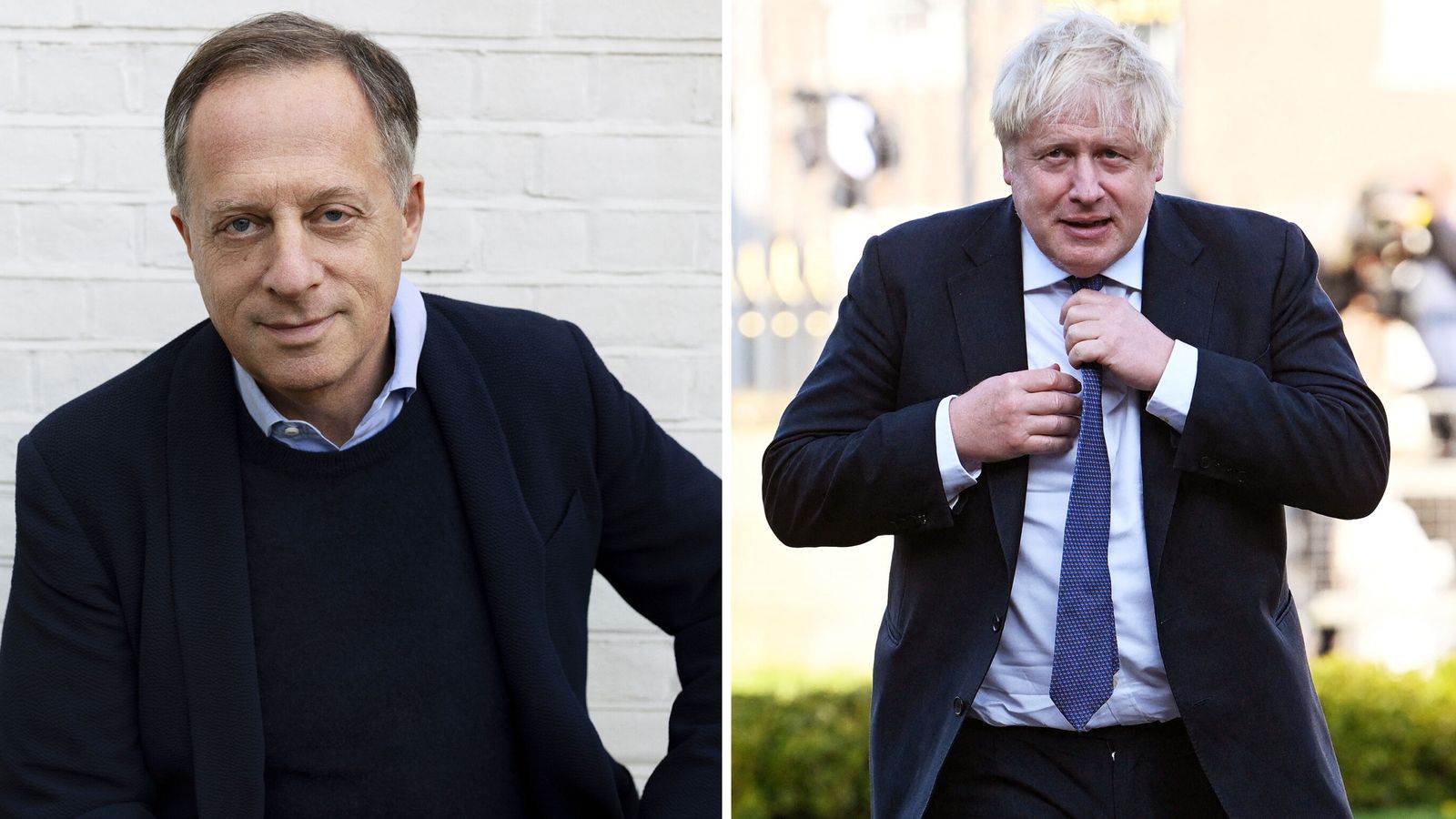Richard Sharp resigns as BBC chairman following row over Boris Johnson loan

Richard Sharp has resigned as chairman of the BBC in the wake of a report into his appointment following a cronyism row.
Mr Sharp said the report found he had breached the government’s code for the public appointments but said it was “inadvertent”.
The matter has been a “distraction” for the BBC and he has therefore this morning resigned as the BBC chair.
He said he will stay on until a replacement is found.
Read the reaction and full report here – Politics Hub
“To chair this incredible organisation has been an honour,” he added.
He had been caught up in a row over his appointment into the role at the BBC since January, when he was reported to have helped facilitate an £800,000 loan guarantee for Boris Johnson – just weeks before the former prime minister appointed Mr Sharp.
An investigation into Mr Sharp’s appointment by the commissioner for public appointments was announced the same month, only for the commissioner, William Shawcross, to recuse himself from the process due to “contact” between himself and the BBC chairman.
Barrister Adam Heppinstall KC took over the probe.
Advertisement
This investigation was published this morning by the Commissioner for Public Appointments.
It outlined how Mr Sharp told Mr Johnson he wanted to apply for the BBC chairman role in November 2020.
He also told the PM, before any interviews took place, that he was going to meet with Cabinet Secretary Simon Case to attempt an introduction for Mr Johnson with someone who had made a “suggestion” that “he might assist the former prime minister with his personal finances”.
The meeting with Mr Case took place in December 2020, but the investigation did not consider or make findings about Mr Johnson’s finances.
All of these issues were not divulged to the government when applicants for the BBC chair role were asked to disclose potential conflicts of interests.
This “gave rise to a potential perceived conflict of interest” on two issues:
1) Mr Sharp’s conversation with Mr Johnson before the application that he wanted to apply;
2) Mr Sharp telling Mr Johnson that he was going to help with his personal finances.
These not being disclosed to the panel selecting him meant Mr Sharp breached the code.
The inquiry found it could be perceived that Mr Sharp was given the job because he helped the prime minister with a financial matter, and he may not be independent of Number 10.
Rishi Sunak – who used to work for Mr Sharp at Goldman Sachs – previously declined to respond to questions about their relationship or Mr Sharp’s integrity.
He told reporters: “Richard Sharp went through an independent appointments process at the time that I had nothing to do with – he was appointed before I was prime minister.
“But also the chair of public appointments has asked a leading KC to review – to re-review – that appointments process so there is not much I can say more that’s ongoing, but it’s right that process concludes.”
Mr Sharp faced renewed scrutiny after the backlash against the BBC’s decision to take Match of the Day presenter Gary Lineker off air for his tweets over the government’s immigration policy. Critics questioned Mr Sharp’s impartiality, in the context of the row about Lineker’s views.